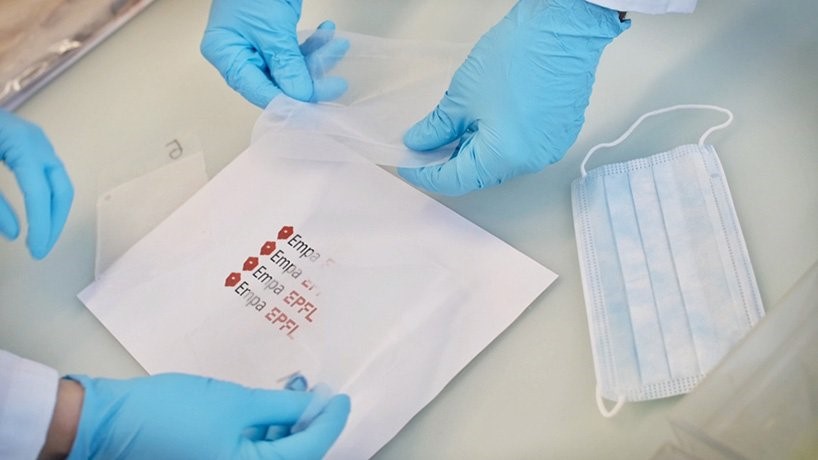
As a result of the COVID-19 pandemic, healthcare workers have mentioned that using face masks can be a problem when treating Deaf and Hard of Hearing patients. Now a team of researchers from the Swiss interdisciplinary research institutes EMPA and EPFL, in its EssentialTech Center, has developed a completely transparent surgical mask made from a biomass-based material and has created a startup called HMCARE to market the masks.
Called HelloMasks, the product designed by the team is intended to replace the standard trim-fold ones healthcare users usually wear, in order to make contact between caregivers and patients less impersonal. Speaking with people when half their face is hidden is difficult. The sound may be muffled, and it’s difficult for a patient to read complete facial expressions. For children, the elderly and the Hard of Hearing, masks are an even bigger obstacle in communicating.
“You can find prototypes of masks that are partly transparent, but they’re just normal masks with some of the fabric replaced by clear plastic,” says Thierry Pelet, CEO of HMCARE. But because plastic isn’t porous, it makes it hard for the wearer to breathe and it also fogs up easily.
The Empa and EPFL researchers spent two years finding the right combination of transparency, resistance and porosity and eventually came up with a membrane made from a polymer developed specifically for this application.
“We can produce fine electrospun membranes with a pore size of about 100 nanometers,” says EMPA researcher Giuseppino Fortunato, who developed the material with Davide Barana. The architecture of the fibers creates extremely small gaps that allow air to pass through but hold back viruses and bacteria.
Because the new masks will be disposable for optimal efficacy (like existing surgical masks) the researchers focused from the start on finding a material that was either recyclable or biodegradable.“Our masks are made 99 percent from a biomass derivative, and we’ll keep working on them until they’re completely eco-friendly,” says Pelet.
The masks will soon be produced on an industrial scale.
 TEXTILES.ORG
TEXTILES.ORG


